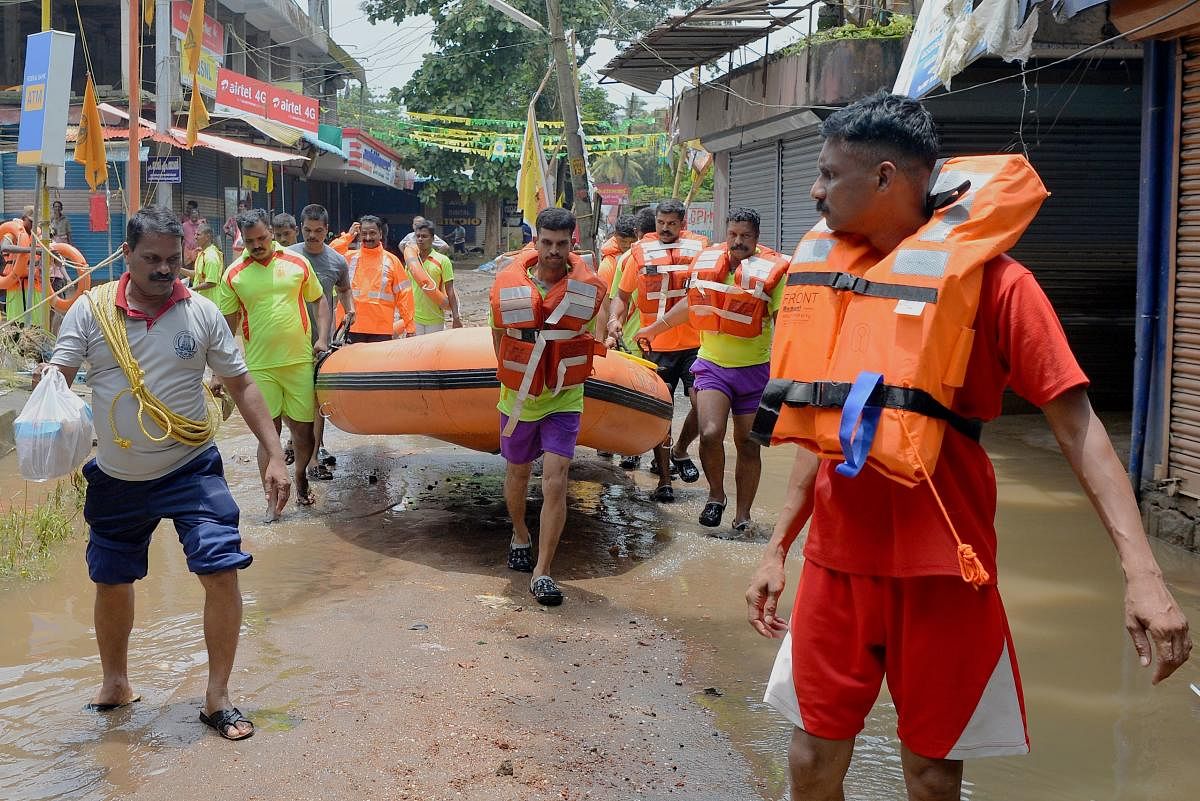
The rescue and relief operation in the flood-affected regions of Kerala has had a key presence – fishermen who took out their boats into the floodwater and brought thousands to safety.
On Sunday, as social media celebrated them as real heroes of the operation the fishermen were, still, saving lives in what could be the last leg of the rescue operations.
T Peter, general secretary of National Fishworkers Forum (NFF), said more than 1,500 fishermen in over 600 country boats were engaged in the rescue operations. “More than 100 of these country boats have fishermen affiliated to the NFF. When the floods hit, our fishermen from Ernakulam, Alappuzha, Kollam and Thiruvananthapuram joined the operation. Soon, the others joined in. It was spontaneous, it was something we just had to do. The only help we sought was from the police who got us vehicles to transport the boats,” Peter told DH on Sunday.
He said the fishermen’s intervention had saved thousands of lives in the affected regions of Alappuzha, Ernakulam and Pathanamthitta districts.
The fishermen’s work in the flooded areas has also revived calls for forming a disaster response force helmed by them. Finance Minister T M Thomas Isaac said it was the fishermen’s operation which saved most of the people who were stranded in the interiors of Kuttanad region. They had already proved their effectiveness in disaster response operations, both on land and water.
“The government had already decided to train 200 fishermen in sea rescue operations. That number has to be increased,” Isaac said.
Chief Minister Pinarayi Vijayan has urged local civic bodies to accord an apt welcome for the fishermen as they return from duty. A daily remuneration, of Rs 3,000, and reimbursement of fuel costs have also been announced. But for the fishermen, the key takeaway will be a validation of what they have maintained in the past, most recently after Cyclone Ockhi – that they could be of immense help in rescue operations.
Since many fishermen used GPS-enabled country boats, they could track interior locations of stranded people. But technology is a supplement. “There’s no substitute for traditional, indigenous knowledge,” said Peter.